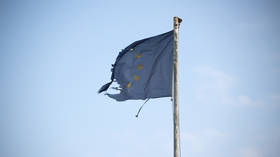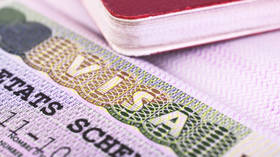Russia promises retaliation over EU visa move

Moscow will retaliate for the EU’s decision to “fully” suspend an agreement that allowed Russian citizens to apply for EU visas under a simplified procedure, Deputy Foreign Minister Alexander Grushko said on Tuesday.
“Violation, circumvention or withdrawal of the EU from the visa facilitation agreement with Russia will not remain without consequences,” the diplomat told RIA Novosti.
Russia reserves its right to take any necessary retaliatory steps, should they “be symmetric, asymmetric or some other that the EU would not expect,” Grushko added, suggesting that the visa decision will ultimately do the bloc more harm than good.
If Brussels decided to shoot themselves in the foot again, that’s their own choice.
Earlier in the day, the EU’s foreign ministers agreed to “fully” suspend the visa facilitation agreement with Russia. Announcing the decision, EU top diplomat Josep Borrell said the move would “significantly reduce the number of new visas issued by the EU Member States” to Russian nationals.
“Until now, it was partially suspended for special collectives, groups of people – officials, entrepreneurs – and now it is fully suspended,” Borrell said, without providing any timeframe for the move to actually get implemented.
At the same time, the bloc will continue to issue visas for “specific groups” of Russians, such as those who seem to oppose the current political leadership of the country.
“There is a common understanding that this will allow for visas to be granted on an individual basis [after] a thorough assessment of each individual case, and especially for specific groups of people,” Borrell explained, insisting that the EU did not want to “cut” itself off “from the Russian civil society” and “from those Russians who are against the war in Ukraine.”













